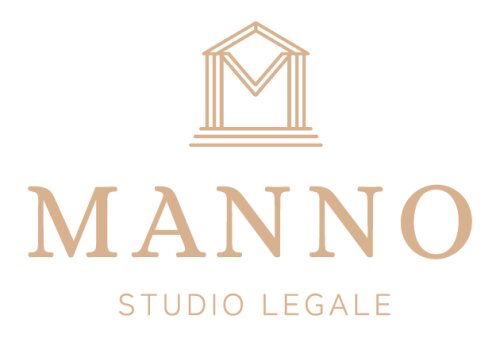Best Brokerage Lawyers in Lecce
Share your needs with us, get contacted by law firms.
Free. Takes 2 min.
Free Guide to Hiring a Real Estate Lawyer
List of the best lawyers in Lecce, Italy
About Brokerage Law in Lecce, Italy
Brokerage (in Italian, "mediazione") refers to the activities of intermediaries who connect parties for the conclusion of business deals, especially in real estate, insurance, finance, and commercial transactions. In Lecce, Italy, brokerage is a regulated profession governed by national and local laws. The Italian Civil Code (Book IV, Articles 1754 to 1765) outlines the general framework for brokers, including their rights, obligations, and compensation. In addition, local regulations in Lecce may affect certain aspects, such as licensing and registration requirements. Licensed brokers (mediatori) play a fundamental role in the market by offering their expertise and facilitating negotiations between buyers and sellers.
Why You May Need a Lawyer
There are several reasons why someone involved in brokerage activities in Lecce may need legal assistance:
- Drafting and reviewing brokerage agreements: Ensuring contracts are clear, fair, and comply with the law.
- Dispute resolution: Handling conflicts arising from commissions, contract breaches, or misunderstandings with clients or other brokers.
- Regulatory compliance: Navigating the complex licensing and registration requirements for brokers.
- Dealing with litigation: Representing parties in court or arbitration related to brokerage activities.
- Advice on duties and commissions: Understanding how and when commissions are due, and how to protect one’s rights regarding payment.
- Cross-border transactions: Managing transactions involving foreign buyers, investors, or properties.
- Misrepresentation or negligence claims: Defending against or pursuing claims if a broker is accused of failing in their professional duties.
Local Laws Overview
In Lecce, brokerage is subject to both national and local laws. Key aspects include:
- Registration: Brokers must be enrolled in the Registro delle Imprese (Business Register) and, in most cases, the local Chamber of Commerce.
- Eligibility: Only those meeting specific requirements (good conduct, lack of criminal convictions, professional qualifications) can work legally as brokers.
- Contractual obligations: Written agreements are strongly recommended to detail commission rates, obligations, and termination conditions.
- Commission entitlement: A broker is generally entitled to a commission if their intervention leads to a successful deal, as per Article 1755 of the Italian Civil Code.
- Dual agency: Brokers can act for both parties (buyer and seller), but must disclose this and act impartially.
- Transparency: Brokers are required to provide clear, accurate information and avoid conflicts of interest.
- Consumer protection: There are specific safeguards for consumers, especially in the real estate sector, to prevent misleading or unfair practices.
Frequently Asked Questions
What is a broker ("mediatore") in Lecce, Italy?
A broker is a professional intermediary who facilitates deals or transactions between two or more parties, typically in real estate, finance, or commercial contexts. They help bring together potential buyers and sellers and assist with negotiations.
Do brokers in Lecce need a license?
Yes, brokers must obtain specific qualifications, typically including passing a training course and registering with the local Chamber of Commerce, to legally operate.
How is a broker's commission determined?
The commission is usually agreed upon by the parties and may be a percentage of the deal value or a fixed fee. If not specified, rates may refer to local customs or the Chamber of Commerce tariff.
When is a broker entitled to a commission?
A broker is entitled to a commission when their involvement leads to the successful conclusion of a deal-even if the final agreement is signed after the broker’s intervention, provided it results from their efforts.
Can a broker represent both the buyer and seller?
Yes, Italian law allows brokers to work for both parties, but full disclosure and impartiality are required. Both sides must be aware of the arrangement.
What happens if there is a dispute over the commission?
Disputes are usually resolved through negotiation, mediation, or, if necessary, legal proceedings. Written agreements help clarify rights and obligations.
Are there consumer protections for real estate brokerage in Lecce?
Yes, there are national and local rules to protect consumers from unfair practices, misrepresentation, or lack of transparency by brokers.
What should be included in a brokerage agreement?
Key elements include the scope of services, commission or fee amount, payment terms, duration of the agreement, and conditions for termination.
Can foreign nationals use brokers in Lecce for property purchases?
Yes, foreign nationals can use licensed brokers and are advised to ensure the broker is legally registered and familiar with international transactions.
Is legal assistance necessary for brokerage transactions?
While not always mandatory, consulting a lawyer is highly recommended for significant or complex transactions, disputes, or when dealing with large sums or cross-border issues.
Additional Resources
For further guidance and information, consider these local and national resources:
- Camera di Commercio di Lecce (Chamber of Commerce): Oversees local registration, qualification, and information for brokers.
- Consiglio Nazionale dei Mediatori: National body representing brokers and offering best practice guidelines.
- Associazioni di Categoria (Trade Associations): Such as FIMAA or FIAIP, provide support and information for real estate brokers.
- Giustizia Civile (Civil Courts): Handle legal disputes related to brokerage contracts or commissions.
- Local law firms: Several firms in Lecce specialize in brokerage, property, or commercial law.
Next Steps
If you are considering engaging a broker or are involved in a brokerage issue in Lecce, here are important steps to follow:
- Verify registration: Ensure the broker is legally registered with the local Chamber of Commerce.
- Request a written contract: Define all key terms, including services, fees, and obligations.
- Seek legal advice early: Consult a local lawyer specializing in brokerage or commercial law, especially for significant, complex, or contentious transactions.
- Prepare documentation: Gather all relevant documents, including correspondence, agreements, and receipts.
- Contact local authorities: If you encounter problems with a broker or suspect illegal activity, alert the Chamber of Commerce or a trade association.
- Stay informed: Use official resources and associations to remain updated on your rights and obligations.
Lawzana helps you find the best lawyers and law firms in Lecce through a curated and pre-screened list of qualified legal professionals. Our platform offers rankings and detailed profiles of attorneys and law firms, allowing you to compare based on practice areas, including Brokerage, experience, and client feedback.
Each profile includes a description of the firm's areas of practice, client reviews, team members and partners, year of establishment, spoken languages, office locations, contact information, social media presence, and any published articles or resources. Most firms on our platform speak English and are experienced in both local and international legal matters.
Get a quote from top-rated law firms in Lecce, Italy — quickly, securely, and without unnecessary hassle.
Disclaimer:
The information provided on this page is for general informational purposes only and does not constitute legal advice. While we strive to ensure the accuracy and relevance of the content, legal information may change over time, and interpretations of the law can vary. You should always consult with a qualified legal professional for advice specific to your situation.
We disclaim all liability for actions taken or not taken based on the content of this page. If you believe any information is incorrect or outdated, please contact us, and we will review and update it where appropriate.










